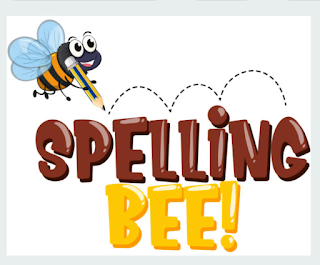Spelling notes by Nicky Wilkinson
Spelling is my least favourite subject: as part of the process side of writing it is my Achilles’ heel — I enjoy the creativity more.
Have spell checkers made a difference? I have found it is not the panacea you might think. Although happily adjusting your text as you type, that’s only if your first attempt is near enough for it to guess and not likely to be confused with a different word. Words like ‘though’ are a nettle bed of danger, ‘thoughts, through, thorough, why did the English language get so fixated on things with ‘ths’ and o and u and r and ‘ghs’? Similarly, "their," "there" and “they're” need careful application.
In my last blog Jane Lynch picked up that I was homophoning! - where the sound is similar but not the meaning. For example: accept versus except, complement versus compliment and counsel or council. For the gourmets amongst us cafetière and cafeteria need to be navigated with caution.
Other pitfalls include the double letter zone of mystery. I was amazed when my kids in Zimbabwe brought home a red grammar book with whole sections of rules for double consonants; embarrassed versus embarased, accompanied versus acompanied and fossils versus fosils to name but a few. Educated in the 1970s no such books were in use at my school, rather osmosis was the order of the day!
For me, spelling mistakes make me feel ashamed. It feels unfair when others instinctively seem to know what's right. When it comes to being published, ultimately the excellence of the written piece should decide its acceptance or not. Writers time to give of their best, but editors can be applied to craft the rawness into line, so that the reader is undisturbed.
I see God the Father as a delighted parent rather than an abrasive teacher, who is more excited about our work than upset with our spelling. That He sees my heart first, is what keeps me going when I'm discouraged. Wherever we are in a project today faith starts us writing, belief fuels perseverance till its done and courage helps us to give of our best, regardless of the cost in time and energy.


Spelling should not be a cause of shame, Nicky. Plenty of dyslexic people have written books, helped by editors. The late Jennifer Rees Larcombe was one. Collecting homophones is one of my hobbies!
ReplyDeleteLovely post, Nicky! Thanks. Some writers struggle with spelling, as well. God, who created you, will ensure He puts in place any solution you might need for your writing. It is well. Blessings.
ReplyDeleteThank you! Appreciate the encouragement! Of you both!
ReplyDeleteMy editor keeps finding words she assumes must be Dutch, as they're definitely not English....
ReplyDelete🤣 not sure what my excuse is!!
DeleteNicky, you beautifully show how we can move from our personal perspectives of our work e.g. the pitfalls of spelling, to God’s altogether different view. God sees, “my heart first” and is “delighted” and “excited” by our work.
ReplyDeleteOnce we remember this, we can have the courage and confidence to start, persevere with and complete our tasks - giving of our best.
Such an important, reassuring and practical message, Nicky.
And, as always, so wittily conveyed. Some of my favourites are:
“Immediately, up went a hand and a student politely pointed out, it was wrong”.
“Indulgently wielding my chalk “
“But it is still wrong, the poor student lamented”
“I… marvelled at the actual spelling “
So human – and in one context or another, we’ve all been there.
Now I will remember to think about God’s being “excited about our work” and start and finish my next task.
Thanks Nicky :)
Camilla
Bless you Camilla 😊
Delete